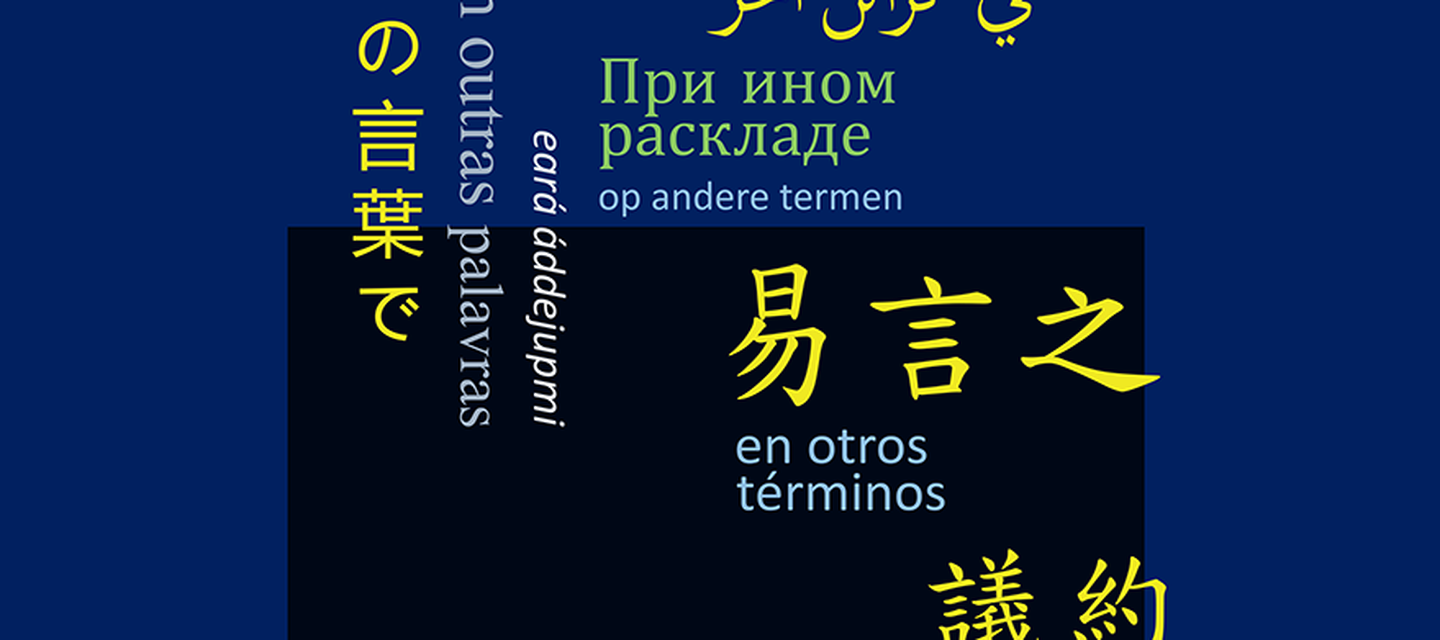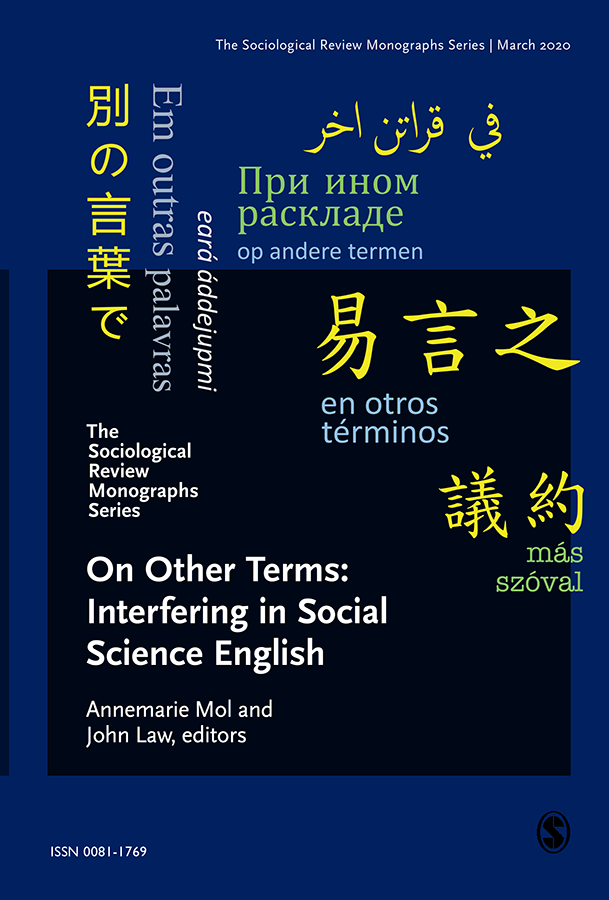
On Other Terms
The diversity of academic work is simultaneously strengthened and limited by the use of English as an ‘international’ language. This event focusses on the book On Other Terms: Interfering in Social Science English that gathers together texts of authors who grew up with other tongues, but who do most of their academic work in English. It introduces carefully selected other terms and articulates what may be gained from allowing them to interfere in English.
On Other Terms: Interfering in Social Science English gathers texts of authors whose first language is not English. Granted, English allows us to have conversations with lots of others, but at the same time it sets a particular tone. Other terms from other tongues offer other possibilities. During this event one of the editors, Annemarie Mol, will shortly introduce the stakes of the project and say something about studying the Dutch term ‘schoon’. Olga Sezneva will talk about the text she co-authored with Liubov Chernysheva, in which they use field work done in two kinds of Russian collective housing sites to unravel the term ‘obshcheye’ – a lot richer than the alleged English equivalent ‘commons’. Amade M’charek makes apparent that writing about ‘harraga’ – rather than ‘migration’ – helps to shift one’s perspective to the people who engage in harraga – in her case from Tunisia to Europe – and to also attend to the stuff that takes the same route, like scandalously cheap salt. Vincent de Rooij, trained linguistic anthropologist, contributes with a spoken review. And finally there is a general discussion, moderated by Olav Velthuis.
You may prepare for this by reading around in: https://journals.sagepub.com/toc/sora/68/2
About the speakers
Annemarie Mol is an ethnographer and philosopher. She is Professor of Anthropology of the Body at the University of Amsterdam.
Olga Sezneva is an Urban and Cultural Sociologist with interests in architecture and material culture, migration and displacement, media piracy, urban aesthetics, and the artistic research.
Amade M’charek is Professor Anthropology of Science at the department of Anthropology of the University of Amsterdam.
Vincent de Rooij is assistant-professor at the Department of Sociology and Anthropology and a member of the AISSR-research group Globalising Culture and the Quest for Belonging.
Olav Velthuis (moderator) is Professor at the Department of Sociology of the University of Amsterdam, specializing in economic sociology, sociology of the arts and cultural sociology.

:rgb(-15)

:rgb(-25)

:rgb(8)
